27 juin 2019
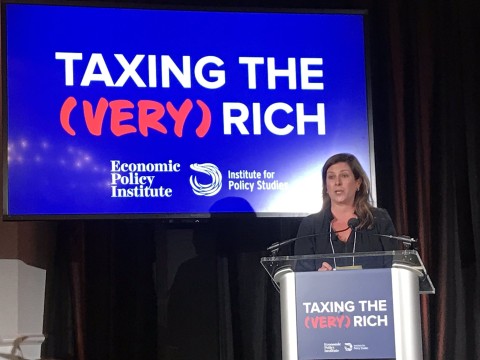
To keep our supporters informed and connected, we send a newsletter with highlights of recent progressive tax developments in Canada and around the world. You can sign up to receive our newsletter here. Note: We will be reducing the frequency of our weekly newsletter due to the summer news schedule but expect to hear from us as we continue campaigning for tax fairness over the coming months in a leadup to the federal election this fall. Here is this week's roundup of tax fairness news:
Photo: Patriotic Millionaires President Erica Payne speaks at a conference on taxing the very rich this week in the US / Twitter
We’re rich: tax us, say billionaires:
More billionaires are calling on government to raise their taxes. The latest endorsement includes a long list of billionaires such as George Soros and Abigail Disney, relative of Walt Disney, who signed a letter this week agreeing that trillions in revenue from a wealth tax would help fund public services such as healthcare and the fight against climate change. Billionaire entrepreneur Eli Broad also weighed in this week with an excellent op-ed in the NYT dismissing philanthropy as a replacement to a wealth tax and arguing “we can all afford to pay more.”
How to tax the very rich was even the subject of a conference hosted this week by Inequality.org, a branch of the US-based Institute for Policy Studies.
The event featured a range of policy and advocacy experts from Democrat Congresswoman Pramila Jayapal to the Patriotic Millionaires, a group of wealthy individuals that supports taxing the rich. Keynote speaker economist Paul Krugman told conference-goers that a major impediment to tax fairness is the sheer influence of the very rich who can advance their political agenda. He explored how that vicious cycle works in a New York Times opinion piece earlier this week.
While the idea of taxing the very rich may be popular, proposals such as Senator Elizabeth Warren’s wealth tax have frequently come under attack in the media. A column this week in the National Post criticized the need for a wealth tax and its effectiveness. It cites a Washington Post op-ed that critiques Emmanuel Saez and Gabriel Zucman, the economists who worked on Warren’s wealth tax plan. The op-ed claims their revenue estimates are exaggerated in part because the very rich can still find ways to avoid the tax. This week, Saez and Zucman fired back with a paper breaking down their calculations and illustrating how anti-tax-dodging measures built into the tax could actually exceed revenue estimates.

CRA uses foreign tax-avoiding multinational for anti-tax-avoidance message:
The Canada Revenue Agency has been paying Facebook hundreds of thousands of dollars in tax-free advertising to promote a message of cracking down on corporate tax avoidance, the Journal de Montréal reported this week.
Since 2016, the agency has paid close to $1.4 million to the digital giant, $257,400 of which was to advertise its message of forcing corporations to pay their fair share. The final amounts were revealed in response to an inquiry from NDP Finance Critic Peter Julian.
Facebook is among the GAFA group of foreign digital corporations that avoid paying higher taxes by not having a physical presence in the regions where they make billions in profit. The bias costs domestic companies, bleeds revenue and jobs from traditional media, and hurts Canadian content, findings the Auditor General confirmed in its spring report.
Canadians for Tax Fairness has been pressuring the government to level the digital playing field by applying GST and HST to imports of internet services, ending the deductibility for foreign digital advertising, and applying corporate tax to the business they do in Canada.

Milner's Tower on the Isle of Man / Alexey Komarov, flickr
Tax havens agree to public ownership registry
While Canada is just starting consultations on the issue, several tax havens recently took a step to address offshore tax avoidance by agreeing to a public registry of the true ‘beneficial’ owners of companies incorporated in their regions, the Guardian reports.
Jersey, Guernsey, and the Isle of Man have evaded the EU’s tax haven blacklist but are effectively considered tax havens by advocacy groups due to their high levels of secrecy and frequent association with scandals such as the Panama and Paradise papers. The Isle of Man has also featured in high-profile tax dodging cases here in Canada.
For years, British lawmakers across party lines have pressured the islands to implement a public registry to combat tax avoidance as the UK has done.
Under political pressure, including being blacklisted by the EU, the three regions recently committed to bring in public registries by 2023.
The advocacy group Global Witness, which campaigned for the changes, said this latest success suggests a changing global norm towards transparency -- one other nations must follow or be left behind.
Canadians for Tax Fairness, Transparency International Canada, and Publish What You Pay Canada have been advocating for a public registry in Canada to tackle tax evasion and money laundering. BC has been a leader in this area, agreeing to set up the first provincial registry. Earlier this month, Minister Bill Morneau announced provinces and territories will be engaging in consultations about a beneficial ownership registry.
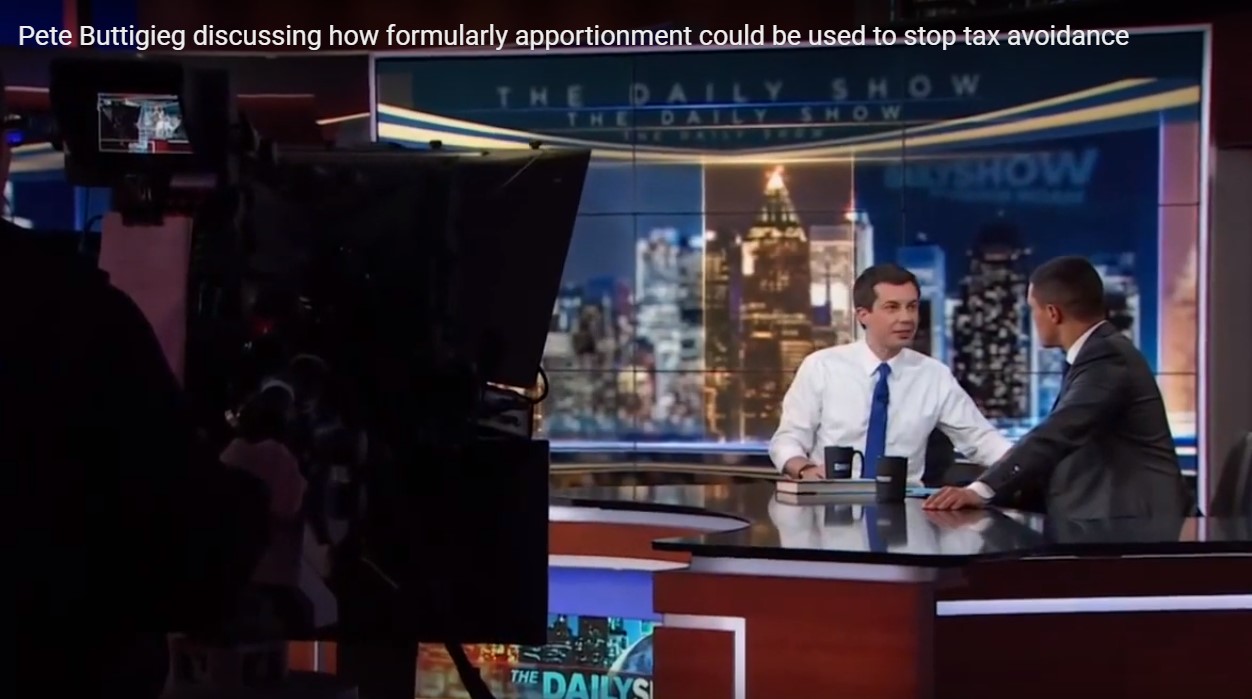
South Bend, Indiana Mayor and Democrat leadership contender Pete Buttigieg discusses international corporate tax reform with host Trevor Noah of the Daily Show.
Democratic leadership hopeful pitches ‘formulary apportionment’ on late night talk show:
In a late-night appearance on The Daily Show this week, Democratic leadership contender Pete Buttigieg does a good job of simplifying a complex tax policy to make multinationals pay their fair share. The South Bend, Indiana Mayor was asked how he would address the billions in taxes avoided by large corporations such as Amazon. In a surprisingly policy-specific response for late night TV, he talks about the need for formulary apportionment -- allocating taxable income based on the region where the corporations have an economic presence. This approach would deter multinationals from using subsidiaries and affiliated companies to avoid taxes. Canada already uses formulary apportionment between provinces, as does the US between states, which Buttigieg points out.
Formulary apportionment is one of several changes that OECD countries are considering to fundamentally reform the global corporate tax system. C4TF recommended these and other measures, including setting a global minimum corporate tax rate, in our submission to the OECD earlier this year.

Pressure mounts to hold Airbnb, short-term rentals accountable:
While other countries have moved to level the digital playing field, Canada’s tax policies continue to favour foreign digital companies over domestic ones, according to a recent op-ed in Policy Options Magazine. It focuses on the lack of regulation surrounding Airbnb and similar sites that host ghost hotels, suggesting one solution could be requiring home-sharing platforms to issue tax slips to the Canada Revenue Agency.
The impact of home-sharing on local businesses and communities is starting to get more attention. The Globe and Mail recently reported on a “groundbreaking” study by McGill researchers that found more than 31,000 homes were removed from Canada’s rental market last year because they were rented out so often on Airbnb. The effect on both affordable housing supply and lost tax revenue is taking a toll on cities, it points out.
A tax on Airbnb rentals could address both housing and revenue needs, according to another opinion piece earlier this year by policy experts at The Mowat Centre. The authors suggest a range of revenue sources for cash-strapped cities, from taxes on short-term rentals to fees for ride-sharing businesses such as Uber and Lyft.
British Columbia is the only province in Canada to have introduced a sales tax on Airbnb. According to a report by Global News this week, the company has provided more than $14 million in PST in just the first six months of being required to remit taxes, money the government plans to spend on affordable housing.

The Alberta Legislature / Photo: WinterE229 (WinterforceMedia), Wiki Commons
Alberta Alternative Budget recommends sales tax
Introducing a 5 percent sales tax in Alberta would generate $5 billion in revenue and allow the province to keep its status as the least taxed in Canada, according to this year’s Alberta Alternative Budget. The AAB, like its national counterpart, the Alternative Federal Budget, is an annual project led by researchers and economists to provide a progressive vision of economic growth and reduced inequality.
While Alberta will need to generate extra revenue to offset the billions lost to Conservative Premier Jason Kenney’s corporate tax cuts and cancelled carbon tax, sales taxes are regressive means of increasing revenue, hurting lower-income individuals most. The AAB suggests offsetting some of this with a sales tax credit for lower incomes.
Other highlights from the AAB include increasing spending on education, investing affordable childcare and offering free dental care to those 18 and under.
Dive into some books this summer with our list of recommended tax fairness reads. Photo by Aaron Burden on Unsplash

‘Tax fairness’ summer reading list:
School is out, the House of Commons has risen for the summer, and many Canadians are heading off on vacation. To mark the season, we’ve compiled a list of recommended summer reads – all about tax fairness. This week’s list is not exhaustive and we’ve got another round of recommendations lined up for later this summer, but feel free to email us your favorite tax fairness reads.
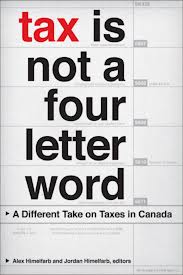
Tax Is Not a Four-Letter Word: A Different Take on Taxes in Canada
By Alex Himelfarb and Jordan Himelfarb
“This is a book about taxes: who pays what and who gets what. More than that, it’s about the role of government, about citizenship and our collective well-being, about the Canada we want.” - Amazon
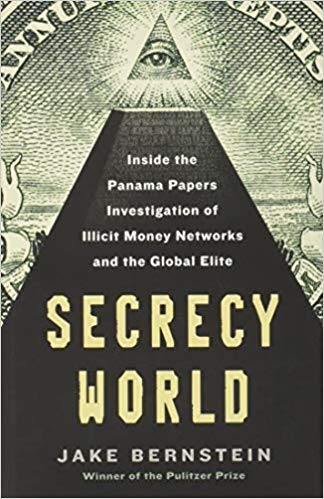
Secrecy World: Inside the Panama Papers Investigation of Illicit Money Networks and the Global Elite
By Jake Bernstein
Pulitzer-prize winning journalist Bernstein “takes us inside the world revealed by the Panama Papers -- a landscape of illicit money, political corruption, and fraud on a global scale.” -Amazon

Give and Take: The Citizen-Taxpayer and the Rise of Canadian Democracy
By Shirley Tillotson
“A book about tax history that’s a real page-turner? Give and Take is full of surprises.” - Amazon
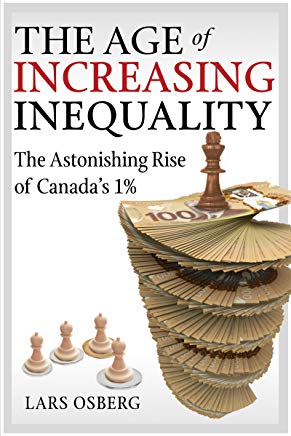
The Age of Increasing Inequality: The Astonishing Rise of Canada's 1%
By Lars Osberg
“This book documents the dramatic and rapid growth in inequality. It identifies the causes. And it proposes meaningful steps to halt and reverse this dangerous trend.” - Amazon
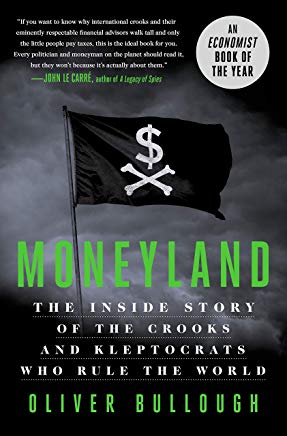
Moneyland: The Inside Story of the Crooks and Kleptocrats Who Rule the World
By Oliver Bullough
“If you want to know why international crooks and their eminently respectable financial advisors walk tall and only the little people pay taxes, this is the ideal book for you.” – Amazon
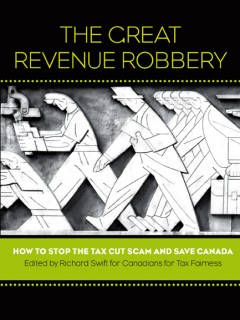
The Great Revenue Robbery: How to stop the tax cut scam and save Canada
By Canadians for Tax Fairness
C4TF’s collection of essays from several years ago still challenges much of the harmful rhetoric used today to support tax cuts and undermine public services.